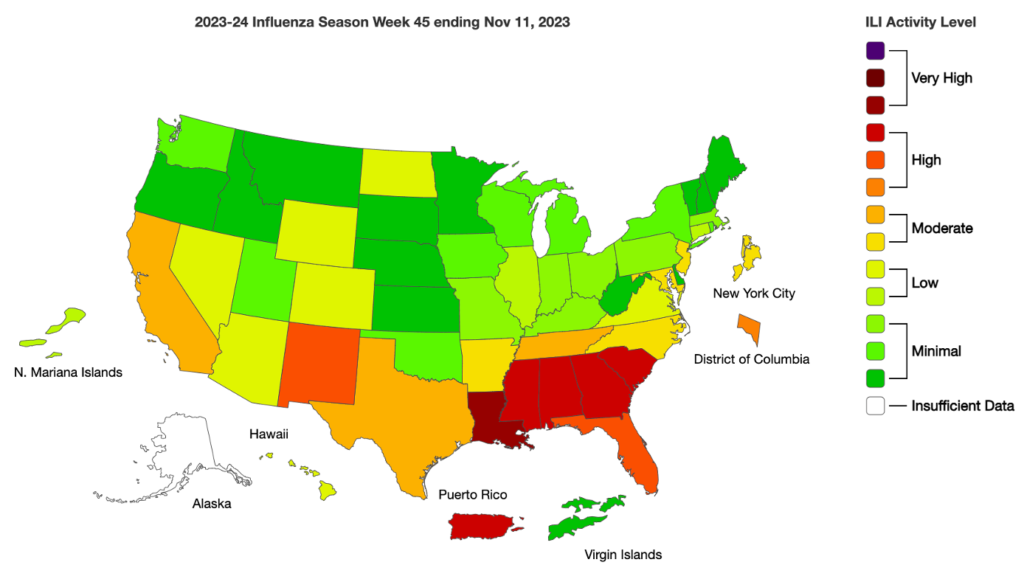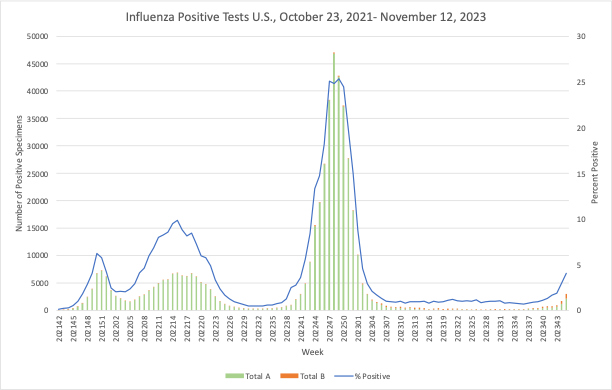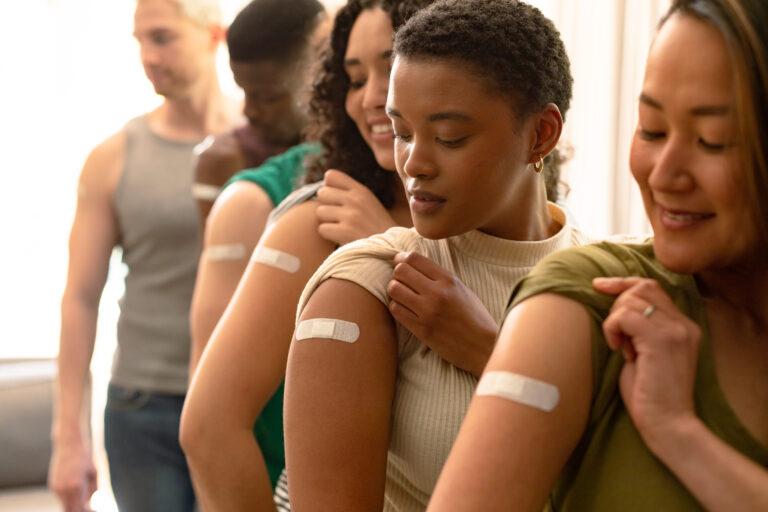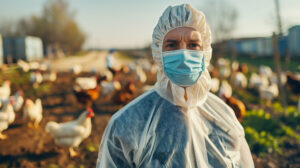December is just around the corner, but that doesn’t mean it’s too late to get your flu and COVID vaccines. And with the holidays bringing gatherings of family and friends for many, the potential for acquiring either virus rises.
- Influenza (Flu). Although it is often recommended that flu shots be given in the early fall, flu activity generally peaks between December and February, with significant activity sometimes lasting through May. Although infection results primarily in respiratory symptoms (such as fever, chills, headache, sore throat, cough, fatigue and stuffy/runny nose), these can progress to more serious impacts or even death, particularly to those who are immunocompromised or elderly. According to CDC, the best way to reduce your risk of flu and its potentially serious complications is to get vaccinated every year. (For more information, see TAG’s Infectious Disease Fact Sheet: Influenza.)
- COVID-19. Although the pandemic was declared to be over earlier this year, COVID-19 has become an endemic virus, seen as following a somewhat similar seasonal trend as the flu. And with cases rising in much of the U.S., getting the updated vaccine now can help keep you healthy through the holidays and onward. According to CDC, vaccination is the best protection against COVID-19-related hospitalization and death, and it reduces the chance of Long COVID which can develop during or following acute infection and last for an extended duration. (For more information, see TAG’s Infectious Disease Fact Sheet: Coronaviruses.)
- Concurrent vaccines. A study presented at Vaccines Summit Boston suggests getting a flu shot and a COVID-19 booster on the same day “may yield higher and more durable” SARS-CoV-2 antibody responses. we analyzed antibody responses in healthcare workers who received the bivalent COVID-19 booster and the influenza vaccine on the same day or different days. IgG1 responses to SARS-CoV-2 Spike were higher at peak immunogenicity and 6 months following concurrent administration compared with separate administration of the COVID-19 and influenza vaccines. These data suggest that concurrent administration of these vaccines may yield higher and more durable SARS-CoV-2 antibody responses.
- What’s happening near you? Businesses can help protect your workers and customers by staying updated on the respiratory illness activity in your area and implementing protections as applicable.
- For the most recent activity in your area, visit CDC’s respiratory virus webpage and input your state and county.
- For ongoing infectious disease trends and prevention and protection recommendations, stay tuned to this newsletter, get past articles at TAG’s Public Health Insights webpage, or subscribe if you’re reading a pass-along copy of our weekly newsletter!
COVID Risk Matrix:

Influenza:


- Britain’s Joint Committee on Vaccination and Immunization said that children between 1 year and 18 months should be offered two doses of the chicken pox vaccine, in a shot that also combines protection against measles, mumps and rubella. This is the first time for the recommendation to be made in the UK and it will now be considered by other government officials. Many other countries have long recommended chicken pox vaccines including the US since 1995.
- A study presented at Vaccines Summit Boston suggests getting a flu shot and a COVID-19 booster on the same day “may yield higher and more durable” SARS-CoV-2 antibody responses.
- Cases of influenza around the globe are increasing, specifically in France and India.
- The CDC is recommending that more people should get tested for tuberculosis as it sees cases increase across the country. According to the CDC’s latest report, up to 13 million people could have latent tuberculosis, and some Arizona counties are hotspots.
- Pertussis vaccine coverage in the UK among pregnant women declined substantially since June 2019, falling 19.5 percentage points to 37.2% in June 2022. This is an important public health measure to protect babies. Additionally, a study based on data collected from 2013 to 2018 support the hypothesis that air pollution is responsible for the global resurgence of pertussis.
- Measles vaccination rates are down, and surveillance lagged during the pandemic: 400 children with measles are admitted to hospitals in Kazakhstan every day; this year, 3,618 cases have been identified in Kyrgyzstan; from January 1 to October 7, the Philippines reported 1,823 cases of measles and rubella; the numbers a year ago for that time frame were around 500.
- Toronto Public Health is seeking an additional $5 million to help combat respiratory illnesses as the city heads into a potentially challenging season. Epidemiological data suggests Toronto will experience a high level of respiratory virus activity this year.





